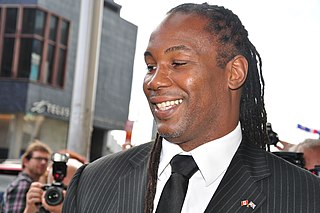A Quote by Helen Eustis
when ... I've thought of madness, it seems most easily explained to me as poetry in action. A life of symbol rather than reality. On paper one can understand Gulliver, or Kafka, or Dante. But let a man go about behaving as if he were a giant or a midget, or caught in a cosmic plot directed at himself, or in heaven or hell, and we feel horror - we want to disavow him to proclaim him as far removed as possible from ourselves.
Related Quotes
The abbot told me once that lying was a betrayal to one's self. It's evidence of self-loathing. You see, when you are so ashamed of your actions, thoughts, or intentions, you lie to hide it rather than accept yourself for who you really are. The idea of how others see you becomes more important than the reality of you. It's like when a man would rather die than be thought of as a coward. His life is not as important to him as his reputation. In the end, who is the braver? The man who dies rather than be thought of as a coward or the man who lives willing to face who he really is?
Some souls think that the Holy Spirit is very far away, far, far, up above. Actually he is, we might say, the divine Person who is most closely present to the creature. He accompanies him everywhere. He penetrates him with himself. He calls him, he protects him. He makes of him his living temple. He defends him. He helps him. He guards him from all his enemies. He is closer to him than his own soul. All the good a soul accomplishes, it carries out under his inspiration, in his light, by his grace and his help.
Everything Tolstoy wrote is precious, but I found this final statement of the truth about life as he had come to understand it particularly beautiful and moving. 'That is what I have wanted to say to you, my brothers. Before I died.' So he concludes, giving one a vivid sense of the old man, pen in hand and bent over the paper, his forehead wrinkled into a look of puzzlement very characteristic of him, as though he were perpetually wondering how others could fail to see what was to him so clear - that the law of love explained all mysteries and invalidated all other laws.
At first I didn?t give a damn to go down in history. I wanted to win. But the more I won, the more I thought about leaving something behind. Yes, it's as important as hell to me. I want to leave something that people will remember me by. Of course, a lot of boxers want to do that. But it's not easy. Take Larry Holmes, he was the big man after Muhammad Ali, he wanted to emulate him, but for some reason the public didn?t take him like they did to Ali. I think people won?t fully understand what I contributed to the sport for years.
How many there are who still say, 'I want to see His shape, His image, His clothing, His sandals.' Behold, you do see Him, you touch Him, you eat Him! You want to see His clothing. He gives Himself to you, not just to be seen but to be touched, to be eaten, to be received within .... Let all of you be ardent, fervent, enthusiastic. If the Jews stood, shoes on, staff in hand, and eating in haste, how much more vigilant should you be. They were about to go to Palestine; ... you are about to go to heaven.
I guess I will say, going back to the Judaism questions, there are mental reflexes or patterns that I think of as Jewish in my own feelings about mysticism and theology.Franz Kafka is someone I very much revere. If I believed in holy texts I'd go to him as a touchstone. Not that I read Kafka all the time at this point. In a way, this is what I most want to talk about and it's the hardest to talk about.
Often nothing keeps the pupil on the move but his faith in his teacher, whose mastery is now beginning to dawn on him .... How far the pupil will go is not the concern of the teacher and master. Hardly has he shown him the right way when he must let him go on alone. There is only one thing more he can do to help him endure his loneliness: he turns him away from himself, from the Master, by exhorting him to go further than he himself has done, and to "climb on the shoulders of his teacher."
Man is a fallen star till he is right with heaven: he is out of order with himself and all around him till he occupies his true place in relation to God. When he serves God, he has reached that point where he doth serve himself best, and enjoys himself most. It is man's honour, it is man's joy, it is man's heaven, to live unto God.



































